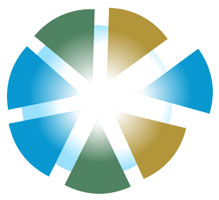Our mission at the InsTED network is to facilitate the debate over whether institutions can and do help to coordinate on beneficial economic outcomes, with a central focus on the implications for economic development. Although we are broadly interested in the relationship between institutions and development, we have a particular interest in the role of international trade.The network aims to enhance the creation and early dissemination of excellent research in economics and related disciplines that focuses on this issue and to facilitate interaction between researchers and policy-makers around the world who are working in this area.
By clicking the ‘Columns’ tab above or below-left, you will gain access to columns that have been written by InsTED network members summarizing their research. Examples include summaries of published papers as well as literature reviews. This is the main route through which we aim to help network members to raise awareness of their research. If you would like to write a column, please get in touch.
By clicking the ‘Topics’ tab, you will gain access to posts on various relevant topics, including links to the above columns where relevant. Each post includes what we think are the key papers on the issue. The aim is to help people get up to speed with debates efficiently, and to make their own contributions.
The ‘Working Papers’ tab provides access to member working papers. These are links to working papers that members have posted elsewhere on topics relevant to InsTED. If you have a link to a working paper that you would like us to post, please get in touch. (Note that we do not have the capacity to post pdfs directly; we can post a link to working papers that are already posted elsewhere on the web.)
Under ‘Research Resources’ we post books, book reviews, data and research funding notifications. The intention is to help provide resources that are helpful for research on topics relevant to InsTED. If you become aware of a resource that you think might be helpful to other network members, please let us know.
We hope the rest of the site is self-explanatory and that you will find it easy and enjoyable to use. If you have any comments or questions then please get in touch.
The InsTED network is based in the Department of Economics at University of Exeter Business School. Its director is Ben Zissimos, with Christos Kotsogiannis and Steve McCorriston as co-directors, and it is managed by Isleide Zissimos, also of the University of Exeter Business School. The InsTED network is supported financially by the University of Exeter Business School. Nikolaos Vlassis of the University of Aberdeen played a significant role in setting up this site.
Our Logo

The logo represents a game of coordination. If you and someone else had to choose a piece of the pie and would only get a prize if you both chose the same piece, but you couldn’t communicate in any way, which would you choose?
In many situations in economics, there are multiple equilibria, with one equilibrium being more beneficial to all parties than others. One of the central roles identified in economics for institutions is to help agents coordinate on that equilibrium.
For example, a role proposed for the World Trade Organisation is that it helps countries to coordinate on an equilibrium with more international trade without undermining the terms of trade of any member country.
In a financial crisis, it has been suggested that The International Monetary Fund helps creditors and borrowers to coordinate on an equilibrium whereby creditors maximise their return and debtors maintain access to financial markets. Of course, there is considerable debate over whether these institutions successfully play these roles and others.
